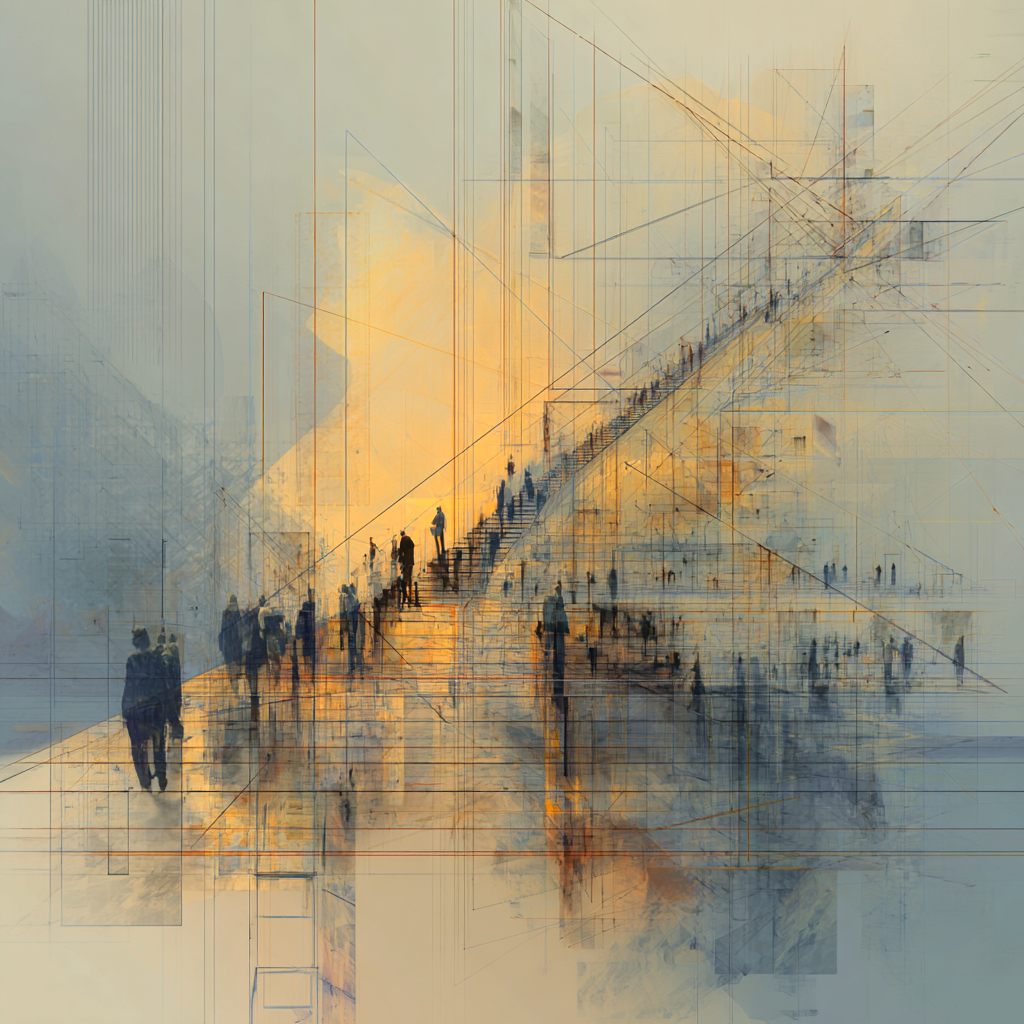When politicians fall short, the people have the answer
What can make a concrete worker from Brønnøysund, concerned with transport and district policy, become concerned about vaccines in Africa and antibiotic resistance? The answer is participation in a public panel, a democratic innovation that this spring has had its first expressions in Norwegian politics.

Ki-generated illustration from Midjourney
Main moments
Politicians would do well to take note of the specific recommendations, as well as to find a more institutionalised place for the scheme in the Norwegian democracy.
On Tuesday, May 13, in front of a packed hearing room at the Parliament, la The Future Panel We present their recommendations on how Norway should use its vast wealth for the good of the world, ourselves and future generations. Among the panel's recommendations were that the Oil Fund should invest more in developing countries and that Norway should create an ombudsman for future generations.
In the long term, we have been one of several clients. Our goal was twofold: First, to contribute to a democratic innovation, which can improve confidence in the political system. Secondly, to involve a wider layer of the people in an important debate: how best manage the great oil wealth we have.
The advice comes at the right time. The rule of action has served us well, but it is not adapted to the size of the fund, or the situation the world is in; it is time for a principled discussion about how the fund should be used. Since the rule of action has become a sacred cow in Norwegian politics, there is little chance that the political parties will be able to think again.
Here's what we can learn from the Future Panel. In current management, an underlying premise is that future generations will enjoy maximum financial returns. The truth is that the welfare of future generations depends on a number of other conditions, which require more active use of the Oil Fund. Here comes the Future Panel with a better principled assessment than what our politicians have come up with. Also concrete recommendations such as allowing the Oil Fund to invest in developing countries are good measures, which should be followed up.
People's panels should not replace our democracy, but they can be used to address weaknesses in it. IN Ireland have they helped resolve deadlocked conflicts over abortion and same-sex marriage. In France, they have been used to assess whether euthanasia should be allowed. What they have in common is that they address thorny value issues that run across traditional dividing lines.
Another area of application is purposes that cost a lot today but pay off over a long period of time, such as in climate policy. Here you have both France and UK used folk panels with success.
Trust in political parties is weakened by the fact that they increasingly It is funded by special interests. Conservatives and FrP welcome tens of millions from salmon billionaires and business leaders. LO ALONE gives NOK 29 million to the parties on the left.
People's panels have the advantage that panelists should not be re-elected or answer to rich donors or party leaders. They don't have to vote in line with party program and power struggles. They can focus on one thing: letting themselves be convinced by the best arguments.
Other political systems have addressed the need for this in other ways. In Britain, they have an upper house, where many sit for life, as a counterweight to the short-term dynamic created by politicians being on elections all the time. A people's panel is a more popular option to bring a more deliberative element into politics.
An apparent weakness with the people-panel model is that people don't know enough about the issues they're supposed to be deciding on. But it is a problem they share with our politicians, who are often generalists with no particular subject expertise or experience. Moreover, the members of people's panels receive good training from independent experts. The Futures panel had eight collections for this from January to April this year.
By helping politicians resolve deadlocked political issues, the People Panel model can also increase confidence in the political system. It's time to involve the people more widely, and release ordinary people to. Literally.
More from Langsikt

This is how budget growth can be slowed
The government should get help to stop new spending. It comes out in the state's own evaluation.

Politics for the Future: How to better include the interests of future generations in Norwegian politics
Four proposals for institutional changes. Memo will be published no later than Wednesday, August 25.

What do we owe the future?
It may seem obvious that Norway should contribute more to combating climate change. But must Norway always do what is best for the world?
